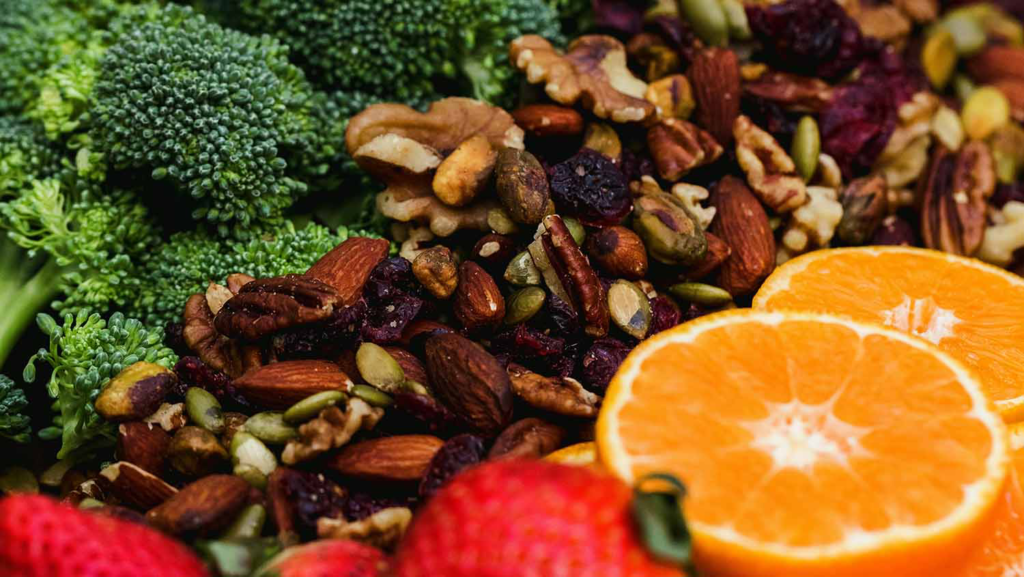With this article, you will learn how to Incorporate plant-based protein into your diet. An increasing range of plant-based proteins is becoming available for people seeking to reduce their intake of animal-based foods. Soy, pulses, nuts, spirulina, and many other ingredients can make a delicious high Proteins meal.

Still, getting enough protein and Important vitamins and minerals can be harder for people who do not eat meat or animal products.
A person must plan in advance to make sure they get enough protein, iron, and vitamin B-12, which people on an omnivorous diet get from animal products. Thus, plant-based proteins in your diet become necessary.
The right plant-based foods can be a good source of protein and other nutrients, often with fewer energy than animal products.
15 Helpful Plant-Based Proteins

The following healthful, plant-based foods have a high-protein content per serving:
Chickpeas
Cooked chickpeas are high in protein, containing around 7.25 g per ½ cup. Chickpeas can be eaten hot or cold, and are highly versatile with plenty of recipes available online.
They can, for example, be added to stews and curries, or spiced with paprika and roasted in the one can apply hummus, which is made from chickpea paste, to a sandwich for a healthful, protein-rich alternative to butter.
Peanut
Peanuts are protein-rich, full of healthful fats, and may improve heart health. They contain around 20.5 g of protein per ½ cup.
Peanut butter is also rich in protein, with 3.6 g per tablespoon, making peanut butter sandwiches a healthful diet with complete protein snack.
Spirulina

Spirulina is blue or green algae that have around 8 g of protein per 2 tablespoons. It is also rich in nutrients, such as iron, B vitamins — although not vitamin B-12 — and manganese.
Spirulina is online, as a powder or a supplement. It can be added to water, smoothies, or fruit juice. A person can also spread it over salad or snacks to increase their protein content.
Quinoa
Quinoa is a grain with a high-protein content, and is a complete protein. Cooked quinoa contains 8 g of protein per cup.
This grain is also rich in other nutrients, including iron, fiber, and manganese. It is also highly versatile.
Quinoa can fill in for pasta in soups and stews. It can be sprinkled on a salad or eaten as the main course.
Mycoprotien
Mycoprotein is a fungus-based protein. Mycoprotein products contain around 13 g of protein per ½ cup serving.
Products with mycoprotein are often publicised as meat substitutes and are available in forms such as “chicken” nuggets or cutlets.
However, most of these products contain egg white, so people must be sure to check the label.
Beans with Rice

Separately, rice and beans are incomplete protein sources. Eaten together, this classic meal can provide 7 g of protein per cup.
Try rice and beans as a side dish, or mix rice, beans, and hummus together then spread on Ezekiel bread, which is made from sprouted grains, for a savoury, protein-packed meal.
Proteins-rich Vegetables
Many dark-coloured, leafy greens and vegetables contain protein.
Eaten alone, these foods are not enough to meet daily protein requirements, but a few vegetable snacks can increase protein intake, particularly when combined with other protein-rich foods.
- a single, medium stalk of broccoli contains about 4 g of protein
- offers 2 g of protein per cup
- 5 medium mushrooms offer 3 g of protein
Try a salad made from baby greens with some quinoa sprinkled on top for a protein-rich meal.
Ezekiel Bread
Ezekiel bread is a nutrient-dense alternative to traditional bread. It is made from barley, wheat, lentils, millet, and spelt.
Ezekiel bread is a good choice for bread lovers who want a more nutritious way to eat toast or sandwiches.
Ezekiel bread offers 4 g of protein per slice. Get even more protein by toasting Ezekiel bread and spreading it with peanut or almond butter.
Potatoes
A large baked potato offers 8 g of protein per serving. Potatoes are also high in other nutrients, such as potassium and vitamin C.
Add 2 tablespoons of hummus for a flavorful snack that is healthier than butter-covered potatoes and increases the protein content. Two tablespoons of hummus contain about 3 g of protein.
Chia Seeds

Seeds are low-calorie foods that are rich in fibre and heart-healthy omega-3 fatty acids. Chia seeds are a complete source of protein that contain 2 g of protein per tablespoon.
Try adding chia seeds to a smoothie, sprinkling them on top of a plant-based yoghourt, or soaking them in water or almond milk to make a pudding.
Hemp Seed
Interestingly, to chia seeds, hemp seeds are a complete protein.
Hemp seeds offer 5 g of protein per tablespoon. It can be used in a similar way to chia seeds.
Bottom Line
Incorporating the right protein-based plant into your diet is a necessity, because they help you get good body-building food easily.
However, people who avoid animal products can eat balanced diets that support a healthy body and reduce the risks of some diseases.
